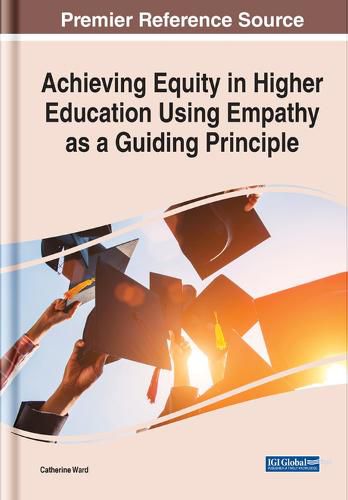Readings Newsletter
Become a Readings Member to make your shopping experience even easier.
Sign in or sign up for free!
You’re not far away from qualifying for FREE standard shipping within Australia
You’ve qualified for FREE standard shipping within Australia
The cart is loading…






This title is printed to order. This book may have been self-published. If so, we cannot guarantee the quality of the content. In the main most books will have gone through the editing process however some may not. We therefore suggest that you be aware of this before ordering this book. If in doubt check either the author or publisher’s details as we are unable to accept any returns unless they are faulty. Please contact us if you have any questions.
The assertion that empathy is an essential characteristic of equity work in higher education puts forth that for educators to operate from a place of justice, fairness, and inclusive practice, understanding one’s capacity for empathy is key. Empathy is a personal quality that allows educators to take another’s perspective to inform the decision-making process about policy, procedures, program and service design, and teaching pedagogy. Engaging empathy in our everyday practice supports our potential to create more equitable and inclusive environments and standards for serving a diverse student population. This publication explores what empathy is, how empathy can be developed, and how empathy can be applied in an educator’s practice to achieve equity-mindedness and mitigate inequitable student outcomes in and out of the classroom.
This publication answers questions about how to serve a diverse study body effectively, supporting personal growth and the ability to understand individual and collective experiences through a more empathic and equitable lens. Educators often go unexamined in their efforts; this publication argues that self-examination and engaging empathy is a way to move toward thoughtfully working across differences and upholding the values of humanity. This book is ideal for higher education administrators, staff, and faculty in student affairs and academic affairs.
$9.00 standard shipping within Australia
FREE standard shipping within Australia for orders over $100.00
Express & International shipping calculated at checkout
This title is printed to order. This book may have been self-published. If so, we cannot guarantee the quality of the content. In the main most books will have gone through the editing process however some may not. We therefore suggest that you be aware of this before ordering this book. If in doubt check either the author or publisher’s details as we are unable to accept any returns unless they are faulty. Please contact us if you have any questions.
The assertion that empathy is an essential characteristic of equity work in higher education puts forth that for educators to operate from a place of justice, fairness, and inclusive practice, understanding one’s capacity for empathy is key. Empathy is a personal quality that allows educators to take another’s perspective to inform the decision-making process about policy, procedures, program and service design, and teaching pedagogy. Engaging empathy in our everyday practice supports our potential to create more equitable and inclusive environments and standards for serving a diverse student population. This publication explores what empathy is, how empathy can be developed, and how empathy can be applied in an educator’s practice to achieve equity-mindedness and mitigate inequitable student outcomes in and out of the classroom.
This publication answers questions about how to serve a diverse study body effectively, supporting personal growth and the ability to understand individual and collective experiences through a more empathic and equitable lens. Educators often go unexamined in their efforts; this publication argues that self-examination and engaging empathy is a way to move toward thoughtfully working across differences and upholding the values of humanity. This book is ideal for higher education administrators, staff, and faculty in student affairs and academic affairs.